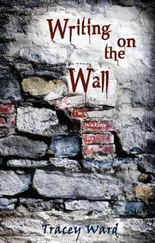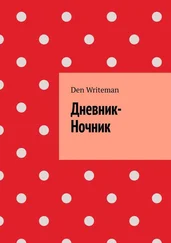When I entered the headmaster’s domain, the great man was looking at the sketch. After a time he folded it over until only the bottom of two pairs of legs were visible, held it out to me and said, ‘Did you do this?’
I whispered, ‘Yes, sir,’ and that was it.
I got six strokes of the leather strap on my hand, but it really didn’t hurt that much. He was getting on in years, and I suspect he did himself more damage in wielding the strap than he inflicted on me. But that was only the corporal punishment. What was so embarrassing, so shameful and degrading, was having my name entered in the punishment book. I had a criminal record already and, good grief, it might affect my job prospects if this became public—even worse should Dad get wind of it. As I returned to the class, Mr Barker was holding the strap and I thought for a minute I was going to get a second helping, but he ignored me and I slunk to my desk, an outcast.
Secretly I was glad that Mr Barker hadn’t administered the punishment himself, as he really knew how to hurt you. I remember in glorious Technicolor my first larruping from him. I forget what I’d done to deserve it but there I was in front of the class while F. B. measured his distance. It was to be the first of three. I braced myself and as the leather came whistling down I moved my hand and he caught himself an almighty whack on his knee. This brought a great smothered snigger from the class and three more strokes were added to my original sentence. As Mr Barker taught a mixed class, we lads had to show a bit of bravado whenever we were about to be chastised. It was unmanly to cry in front of the girls, but to tuck your right hand under your left armpit after the punishment was acceptable. Girls were never punished, and I’m sure they secretly revelled in the spectacle as some poor devil held out his hand for the strap. Is this a trait in women? After all, during the French Revolution they took their picnic lunches and their knitting to enjoy the work of Madame Guillotine…But I digress.
One of the popular myths going the rounds regarding the strap was that a hair from one’s head laid across the palm of the hand would take some of the sting out of the blow. It was worth a go, and I tried it a couple of times, but it didn’t work for me, so I packed it in. Had it been a success I could well have been bald before I left school.
Apart from daisies, dandelions and buttercups, I can’t recall ever seeing any other flower. I wouldn’t have recognised a bluebell if you’d rung it violently into my good ear. Even in Westwood Park the rhododendrons were not a riot of colour; they were in fact a dirty grey from the fallout of the factory chimneys of the cotton mills, which caught me at a disadvantage when some joker or other named a festival Beautiful Oldham. Every year schoolchildren had to paint or draw a daffodil and those judged to be winners had the satisfaction of having their efforts pinned round the walls of Werneth Fire Station. The doors were opened to the proud public, and talented offspring pointed out their own contribution to their parents—in my case ‘Eric Sykes, aged twelve years, Ward Street Central School’. It was a marvellous exhilarating day out, culminating in a walk through Werneth Park all in our Sunday best. The daffodils round the walls were at least all yellow but back in the classrooms where we had all competed it would have been a psychiatrist’s nightmare. Most of us had never seen a daffodil and like a rumour some of the entries were greatly distorted.
I’m not sure, but I think we only had one lady teacher at Ward Street Central, Miss Thomson, blonde, medium-sized but bulging. As I think back she reminds me of Miss Piggy in The Muppet Show. Anyway on one occasion I was kept in class to write out some lines before I was dismissed. Head bowed, I was writing ‘I must not do…’ whatever it was for about the hundredth time, with four hundred more to go, when a shadow fell over me. I looked up and Miss Thomson was perched on the edge of my desk, looking down at me in a peculiar way. She was hot and her make-up was beginning to cake, and little beads of perspiration dotted a faint moustache which I’d never noticed before. After a few moments she said, ‘You have very long eyelashes for a boy.’ I thanked her, she gave me a long peculiar look and, picking up my uncompleted lines, she said, ‘That’ll do,’ and left the room. For some inexplicable reason my mind raced back over the years to when I lay wounded and the little nurse with the sad smile stroked my forehead.
Then there was Mr Wilton. He was our English teacher. I think he enjoyed listening to himself a darn sight more than we did. Well built, he wore a grey suit and for the street he wore a brown trilby with the left side of the brim turned down. I suppose that this was how he imagined a poet would wear his hat. Incidentally, why must we have an English teacher? I could have understood it if I’d been French or Greek but I not only spoke English fluently but could read it as well. Mr Wilson was groaning on about something or other and my interest in the lesson waned. I looked out of the window and my eyes were drawn to our house. One day, noting that the front door was closed, I turned my head to the house in Ward Street, where I made my abortive rat-a-tatting and had my last brush with Constable Matty Lally, and suddenly something extraordinary caught my eye: in the middle of the Mucky Broos two dogs were stuck together, bottom to bottom, trying to run in opposite directions. It was intriguing, and I was wondering what was going on when a woman came out of her house and threw a bucket of water over them, and they came apart, like greyhounds leaving the traps at the races. I turned back towards the blackboard and with a start I almost bumped my face against Mr Wilton’s jacket. He had been leaning on my desk, baffled as I was, no doubt, by the goings-on outside. I thought he was about to discuss it, but I was way off the mark. ‘Sykes,’ he said, ‘I am endeavouring, in my humble, stumbling way, to add a little knowledge to that treasure house above your eyebrows, but as you prefer to ogle lasciviously at a rutting perhaps you’d be more at home in the Zoological Gardens?’
I looked at him in wonder, thinking that to learn English could be an advantage.
Mr Sutcliffe was our sports master, a tidy, tall, black-haired man; it must be said, that in his sports jacket and flannels he looked ideal for the part. It was also rumoured that he played cricket for Werneth Second Eleven, which in my mind only was open to doubt. For one thing, he wore spectacles with lenses as thick as the bottom of a pop bottle, making his eyes look like blackcurrants; also he never seemed to like cricket. When we were all eager to be marched down to where we played our organised games, he would be looking at the sky, hoping for rain, or even bad light, in which case we spent the sports hour in the gym, practising imaginary cover drives, leftfoot-forward off-drives, back on non-existent stumps for an imaginary short ball. We did all this synchronised to a record on a wind-up gramophone, usually of ‘The Blue Danube’.
These exercises in the gymnasium were no substitute for the real cricket, at which Mr Sutcliffe was a semi-pro. Perhaps he was embarrassed to have to shepherd a crocodile of boisterous, happy schoolboys through the streets on the way to the cricket ground. This was in fact a large area of fairly flat ground, with goalposts at either end for footie; and, because there wasn’t a blade of grass to be seen, our cricket was played on coconut matting. We didn’t have two ends—in fact I don’t think we had more than four stumps, but that was just right: three for the wickets and one for the bowler. There was only one pad, which was buckled on to the left leg, and if you happened to be left-handed, tough.
Читать дальше












